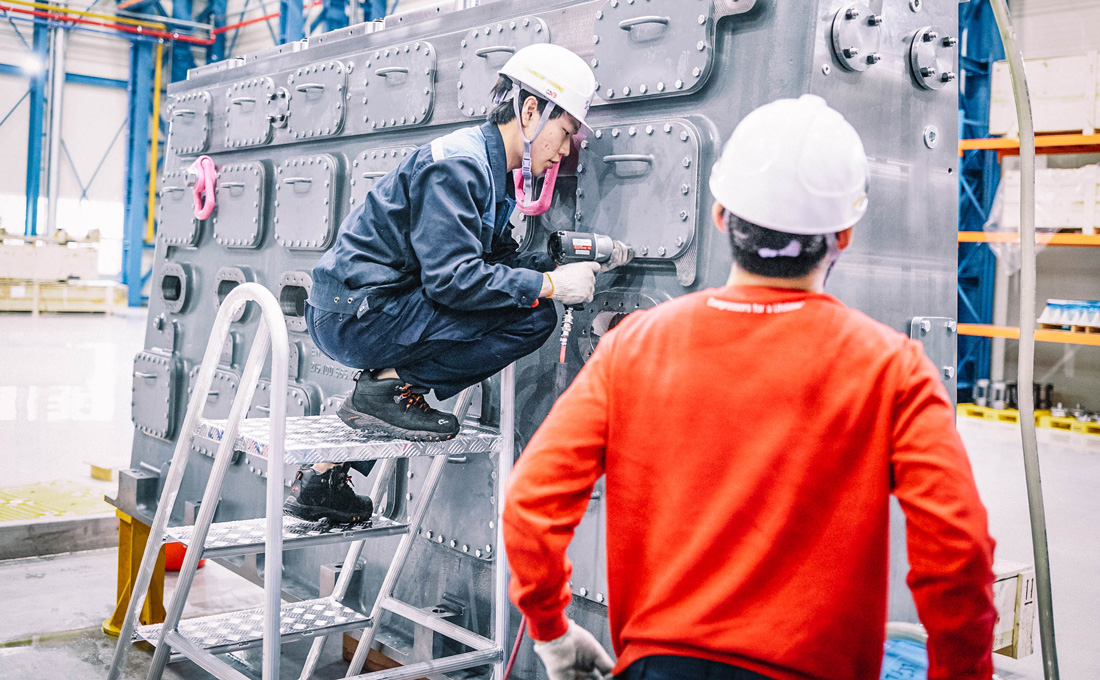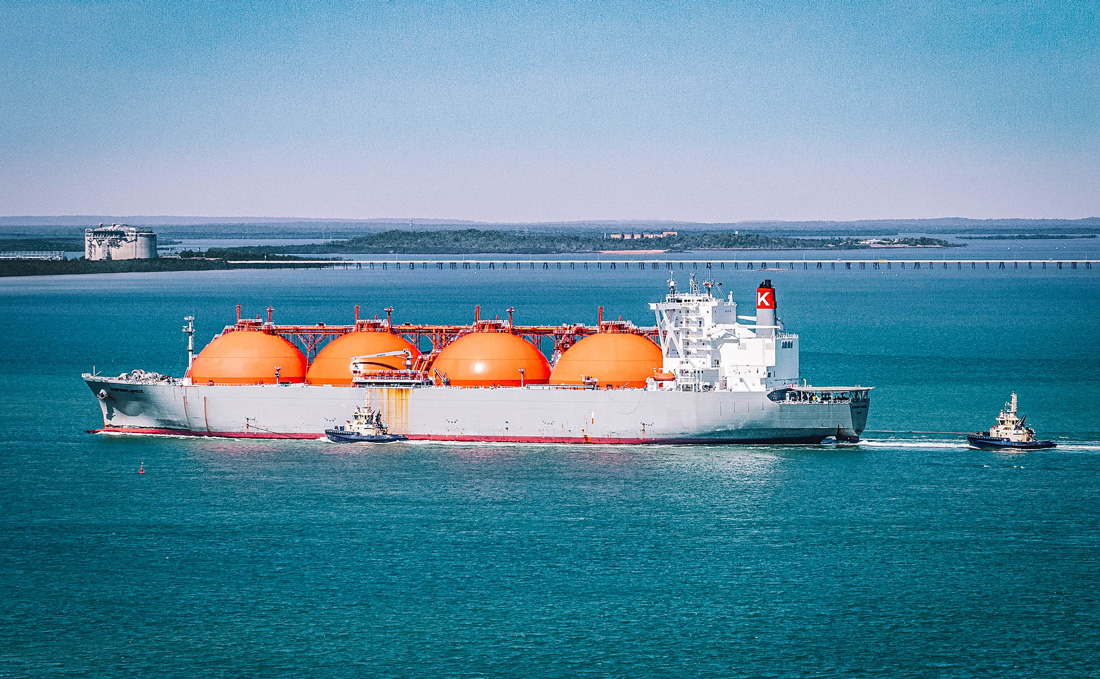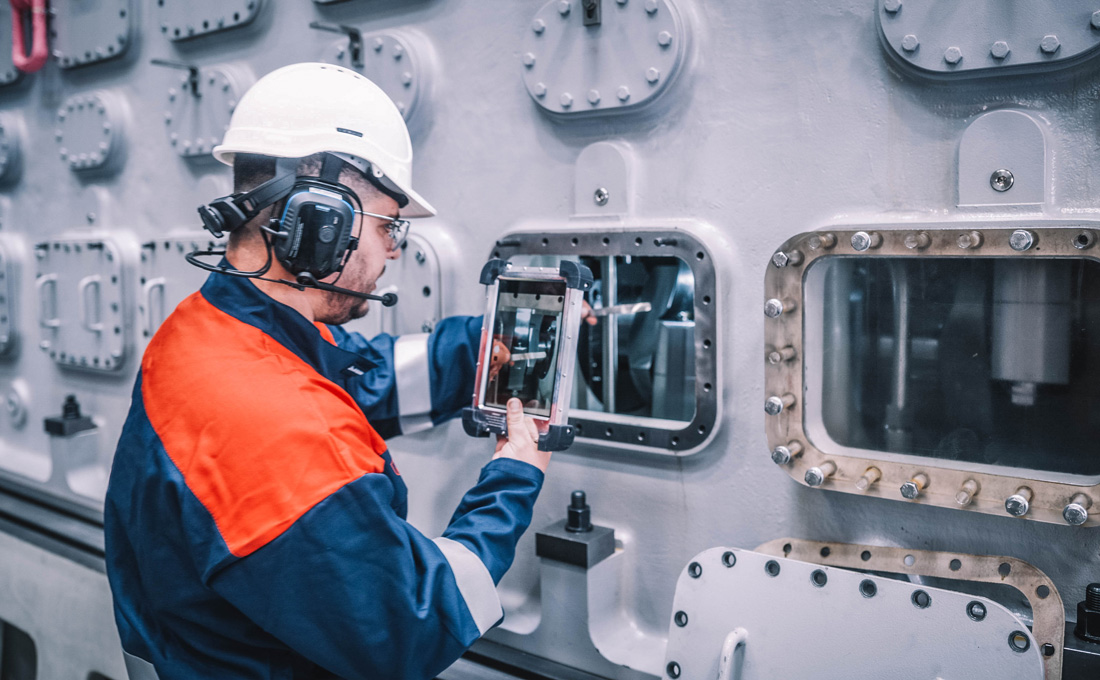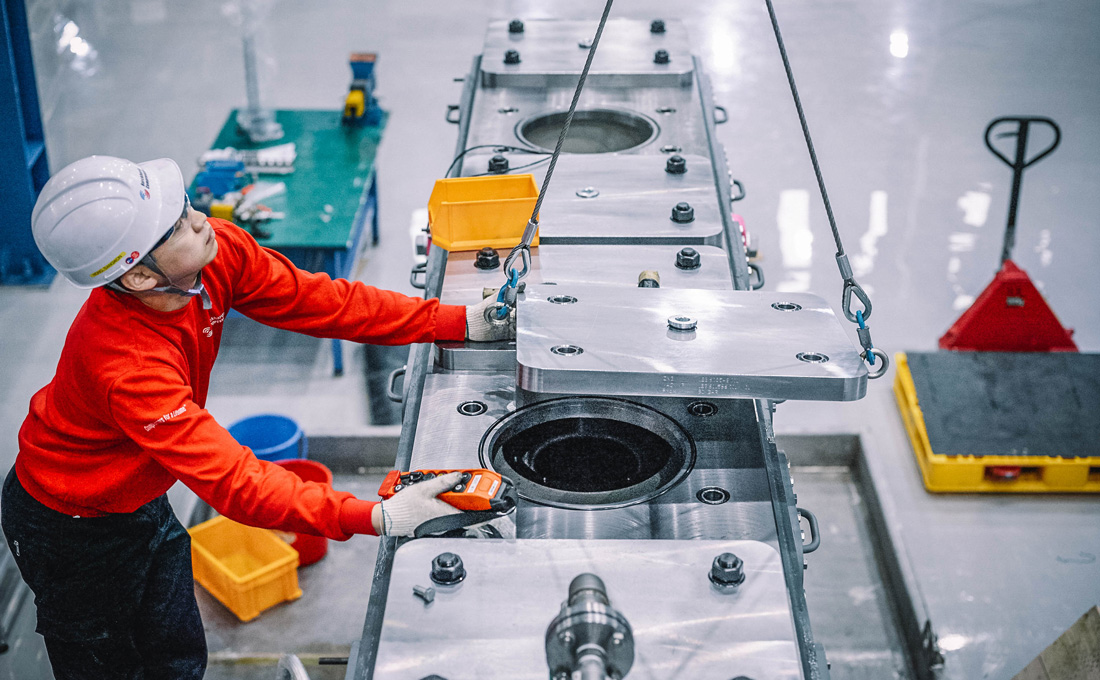Burckhardt Compression — World leader in compressing gases
Burckhardt Compression builds reciprocating compressor systems of unrivalled quality. The strongest compressor built by the Winterthur-based company compresses at a final pressure of up to 3'500 bar and requires a motor with the power of a jumbo jet.
Pressure in a car tyre is 2 to 3 bar. It is therefore difficult for anyone to imagine the force of a reciprocating compressor that compresses gases under thousands of bar. Boasting almost 180 years of experience, Burckhardt Compression has set global standards in gas compression. The high-pressure reciprocating compressors are used, in particular, in the petrochemical industry to produce raw materials such as plastic pellets from various gases. For example, in large-scale plants ethylene is forced to react under the highest pressure. The pellets are extruded or melted for end products made from soft polyethylene (LDPE), such as cable casings or construction films.
Global market leader in reciprocating compressors
Founded in 1844 as a mechanical workshop in Basel, Switzerland, the company launched the first compressor with a maximum pressure of 6 bar in 1883. Brought into the fold of the Sulzer Group in 1969, the company was rebranded as Burckhardt Compression in 2002 after a management buy-out and has since become independent.
The gas compression experts are the world's only manufacturer to offer a complete range of reciprocating compressors, including services. The systems are used in the areas of gas production and processing, gas transport and storage, refineries, chemical and petrochemical industries, as well as hydrogen mobility, energy and industrial gas.
Of the some 2’600 employees, there are 400 service technicians working around the globe. Over half the 800 people working at the Winterthur headquarters in Switzerland are involved in production and assembly. Production sites are located in Switzerland, India and China, with assembly sites in Switzerland, India, China, the USA and South Korea.
Each compressor is unique
Whether lubricated or unlubricated, the Burckhardt Compression reciprocating compressors compress various gases to 300 and up to 3'500 bar so they can be transported, stored or processed. The systems, each built for highly specific customer requirements, are installed in pipelines, underground tanks, chemical plants and on ships.
The compressors are used on ships if the drive consists of a dual-fuel engine. Liquefied natural gas (LNG) is used as an alternative fuel in this engine. To do this, the gas must be compressed on board and cooled to below -160°C. This solution is particularly attractive when strict environmental requirements must be met and is now used on freight, commercial and also cruise ships. The emission of carbon dioxide, sulphur and nitrogen oxides is reduced by up to 40%.
LNG tankers transporting the liquid natural gas are a special case. As the compressed and cooled gas expands and heats up during transport to the ship's tanks, the evaporating gas is liquefied again by compressors and fed back into the transport tanks or fed into the engine as fuel. The liquid natural gas takes up 600 times less volume than in the gaseous state, therefore enabling efficient transport of large quantities.
Digitalisation and hydrogen
Reciprocating compressors last from 40 to 70 years. If a large-scale plant undergoes modifications, the compressor system may also need to be adapted. Accordingly, the service side plays a key role at Burckhardt Compression. The effects of the pandemic have once again pushed the innovation forwards, so that smart remote maintenance will become an integral part of the service and training portfolio as early as 2022. Using technology such as special tablets or mixed reality glasses, a maintenance crew, on board a tanker for example, will receive instructions via a satellite connection from the Burckhardt Compression specialist to conduct checks, tests or maintenance work.
Equally interesting are the increased activities in the hydrogen industry, for which the Winterthur-based company has developed oil-free reciprocating and membrane compressors. A test facility is currently under way at the company premises, with the aim of further developing sealing technologies for filling station systems.
In partnership with Brütsch/Rüegger Tools
Alongside Burckhardt Compression AG in Winterthur, Burckhardt Compression Korea Ltd., based in Busan, also procures a number of items from Brütsch/Rüegger Tools. For more than 20 years , the assembly plant located near shipyards and container ports has favoured high-quality assembly technology and standard parts. These parts include torque wrenches, lifting means and lashing elements for lifting technology or special designs such as boxes with shadowboards. Sangwon Hong, buyer at Burckhardt Compression Korea in Busan, is in regular contact with the Brütsch/Rüegger Tools export team and is delighted: "Our long-standing partnership has been nothing but positive". The plant by the Sea of Japan usually favours complete shipments, which are invoiced in the local currency, on a desired delivery date.






